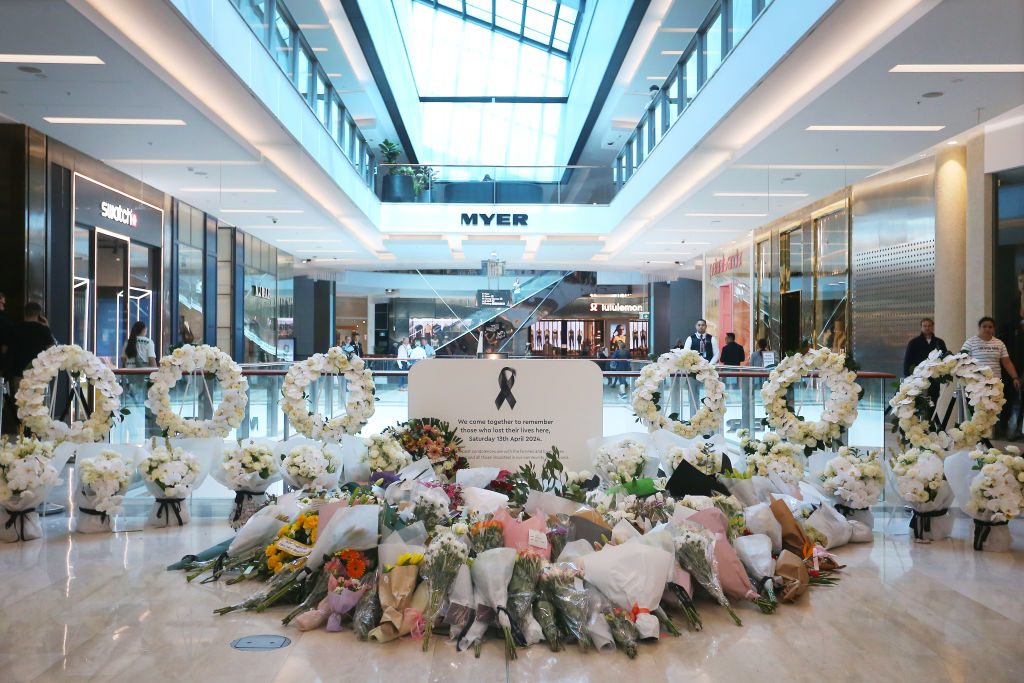
Early misinformation identified a mentally ill man who stabbed 14 people in Sydney on March 13, killing six, as a Muslim or Jewish extremist. These falsehoods highlight the commonplace way in which Muslim and Jewish communities are scapegoated in times of crisis. To improve social cohesion in Australia, we must do more to prevent such instances of xenophobic and religious stereotyping.
Soon after the horrific events at Bondi Junction in Sydney’s east, social media sites including X, Facebook, Instagram, TikTok and Reddit were main conduits for the rapid spread of misinformation. X accounts with large followings, and even a British television presenter, initially alleged the attacker was an Islamist terrorist. Some social media users also suggested the attacker was anti-Semitic, speculating that an area with a high Jewish population was deliberately targeted and that the attack was somehow connected to the Israel-Hamas war.
Others speculated online that the attacker was Jewish. Pro-Kremlin Russian-Australian Simeon Boikov was one key social media figure who amplified this narrative. Boikov is being sheltered by the Russian Consulate in Sydney to avoid arrest for assault. Within a matter of hours, his false claims had reached hundreds of thousands on X and Telegram and were even repeated by a national news outlet.
Whereas the attacker may have been acting on feelings of misogyny, misinformation about his motivation and supposed background as either Muslim or Jewish quickly spread far and wide. Some social media figures who spread this misinformation apologised for their incorrect assumptions, but many other posts and comments still remain online.
This misinformation is deeply problematic and harmful to Muslim and Jewish Australians. It is not uncommon for religious minorities to face retaliation over bouts of violent crimes and extremism, including wider geopolitical events abroad. In the first seven weeks of the Israel-Hamas war last year, there was a thirteen-fold increase in reports of Islamophobia made to Islamophobia Register Australia. In October and November of last year, the Executive Council of the Australian Jewry documented 662 anti-Semitic attacks in Australia.
As made clear in the 2024 threat assessment of the Australian Security Intelligence Organisation, religiously motivated violent extremism remains a real threat in Australia. But in no circumstance should faith communities at large be vilified and harassed for the acts of violent criminals and extremists. Religiously and racially motivated hate is antithetical to Australia’s aim of furthering social cohesion and the safety of all Australian citizens.
As a society we need to be better prepared to prevent the deterioration of social cohesion in response to violent criminal and extremist activities. We saw similar threats to social cohesion emerge in the aftermath of a knife attack at an Assyrian church in Wakeley, Sydney, two days after the Bondi Junction attack. The Wakeley stabbing has similarly led to fears that Islamophobia may increase at the community level.
Regardless of background, all Australians should call out racial or religious hate as it arises. A good example of solidarity was the #illridewithyou campaign aimed at protecting Muslim Australians on public transport from potential backlash emerging from the 2014 Lindt cafe siege. This grassroots campaign on social media demonstrates the role that even ordinary Australians can play in contributing to a safer and more socially cohesive society.
Greater regulation of social media is also needed to prevent the spread of misinformation during times of crisis. A bill before the federal parliament would fine platforms for failure to comply with industry standards and codes of conduct in regulating misinformation and disinformation they carry.
The esafety commissioner’s work in this space is also an important step to tackling the proliferation of terrorist and violent extremist material and activity online. X will appear in court in May to determine whether they breached the law by failing to comply with the commissioner’s notice to remove online footage of the Wakeley stabbing.
The online regulator has also recently issued legal notices to Google, Meta, X, WhatsApp, Telegram and Reddit to answer a series of detailed questions about how each is protecting Australians from terrorist and violent extremist material.
People will continue to turn to social media for communication and for accessing information in times of crisis. But as the two recent stabbings in Sydney show, more must be done to resist the widespread proliferation of misinformation during times of heightened social tension. Increasing the regulation of social media and encouraging ordinary citizens to act in opposition to racially and religiously based misinformation are straightforward strategies that will go towards building a more cohesive Australian society.

